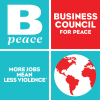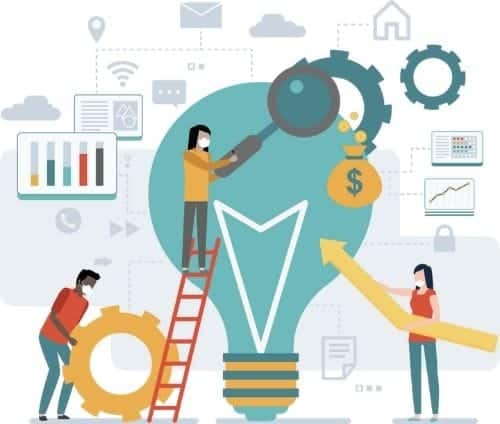As the worldwide economy begins to emerge from a three-month medically induced coma, small businesses are poised to lead the way in building back better—with more innovation and agility, and more aligned with customers.
Smart business leaders have been asking three questions as they prepare to restart:
1. BUSINESS MODEL
Is the way we made money pre-pandemic going to be the way we make money now?
Fundamental business models are changing and will likely continue to change as the global economy adjusts to the “new normal” of life beyond COVID-19. Many larger legacy businesses will likely struggle to adapt, but small and medium-sized businesses have an opportunity to seize this moment to rethink every aspect of their business model.
Here’s what this rethinking could look like:
- Supply chain. Is our supply chain going to be accessible? Reliable? How do we diversify to become more resilient against disruption?
- Distribution. Can our product or service be taken up online? How far do our products have to travel to reach our customers, and how will that be changing?
- Customer base. Can we serve different customers—B2B, B2C—or different segments within those categories?
- Pricing. What is the sweet spot on product mix and pricing? What is most valuable to customers now?
- Workplace. What will the implications be of sustained remote working? New products or services to support working from home? New worker “commuting” patterns? And what are the technology requirements?
- Culture. Have we built a culture that is nimble and open to innovation? Is our business poised to take advantage of an explosion of innovation across the globe?
- Partnerships. How should we be looking at other businesses in our space? Is now the time to grab market share? Merge? Acquire? Explore “coopetition”?
2. NEW RULES
Do we know the new rules of the road, and are we prepared for the curves?
Reopening is a confusing and rapidly changing set of phases. Do you know the new rules of the road for your stage, state and locality, and/or your category?
Ask yourself:
- What new safety equipment or personal protective equipment should we be providing to our employees?
- Are we clear on the rules for safe social distancing for customers and employees?
- Have we revamped all of our cleaning procedures?
- What regulations are changing for our business? Standards? Hours? Quality assurance?
- How often do we need to review all of these to be sure we’re up to date?
The good news is you don’t have to go it alone. Trade associations, chambers of commerce and local business groups are doing lots of the legwork for you.
3. BRAND AUDIT
What have we been known for? Who do we want to be?
Customer and employee expectations have changed dramatically. So take a look at your brand—who you are and what you stand for. Here are a few examples of where to focus:
- Quality. Where are you in the market? High quality? Low cost? Customers will prioritize safety regardless of where you fall on the value spectrum.
- Employees. How did you treat your employees during the crisis? Was pain shared equally? Have you ensured their safety as employees return to work?
- Local. How well do you tell your story as a locally owned and managed company? The importance of buying locally has never been higher, with shorter supply chains and local management bringing increased reliability to customers.
Now’s the ideal time to enhance an already strong brand or repurpose a challenged one. And be sure you have the communications infrastructure to deliver this brand promise, both internally and externally.
The bottom line:
There’s a huge opportunity for small businesses to build back better, to re-emerge stronger and more resilient than they were a year ago.
Now is not the time for incremental change.
Be bold. Be better.




